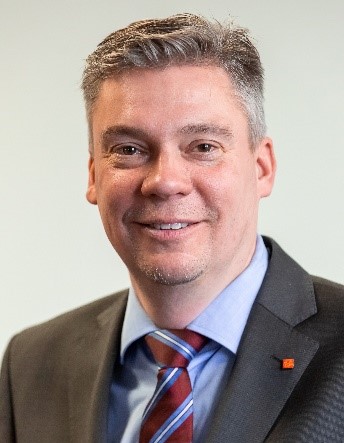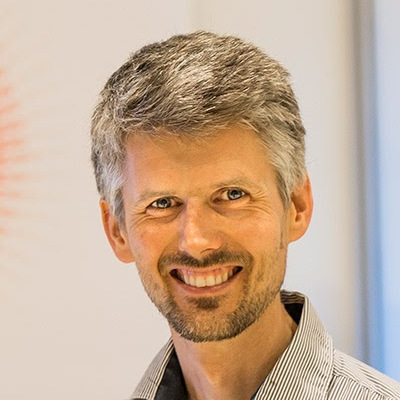|
Invited Speakers
Keynote-Address
Gerhard Kahmen
|
IHP – Leibniz Institute for high performance Microelectronics, Im Technologiepark 25, 15236 Frankfurt (Oder), Germany
BTU - Brandenburg University of Technology, Siemens-Halske-Ring 14, 03046 Cottbus, Germany
"Microelectronics – Quo Vadis?"
Abstract:
As silicon electronics is based on the most advanced manufacturing processes, a technology rush never experienced before in history took place during the last decades from the first transistor to modern system on chips with billions of integrated transistors. Recently the continuous scaling of CMOS is getting more and more challenging and approaches physical and economical limits. Complementing highly scaled CMOS with orthogonal technologies and functional modules is a promising way out to further increase performance and functionality of future electronic systems.
After a brief review of state of the art CMOS electronics, this talk will present and discuss BiCMOS based devices and additional technology modules such as Si-photonics and RRAM devices being a complementing key technology to meeting the requirements of next generations electronic systems.
|
About the Speaker:
Gerhard Kahmen (M’21-SM’21) received his Diploma (Dipl-Ing.) in Electrical Engineering (Diplom) at the technical university of Aachen (RWTH) in 1997 and the Dr.-Ing. in electrical engineering from Ulm University in 2016. From 1998 to 2000 he worked for Philips Semiconductors in Nijmegen / The Netherlands on power amplifier modules for handsets. In 2001 he joined the Test & Measurement division of Rohde & Schwarz in Munich where he developed high dynamic range broadband RF mixed signal ASICs for test & measurement equipment. From 2006 to 2010 he was leading a mixed-signal ASIC R&D team as a director of engineering being directly involved in the development of key ASIC components for Rohde & Schwarz equipment. From 2011 to 2019 Gerhard Kahmen was responsible for the worldwide mixed signal ASIC R&D activities of Rohde & Schwarz in a Vice President position including an R&D site in Portland / Oregon / USA. Within this appointment he was directly involved in the development of complex mixed signal systems such as high dynamic range GS/s Nyquist rate DACs for digital RF signal generation and ADCs for digital oscilloscopes. Since 2020 Gerhard Kahmen is in the CEO position of the IHP- Leibniz Institute for High Performance Microelectronics / Frankfurt (Oder) and holds a full professorship for semiconductor technology at Brandenburg Technical University (BTU).
His research interests are broadband RF / Mixed-Signal ASICs with high dynamic range, ultra-high speed digital-to-analog / analog-to-digital converters for digital RF signal generation and analysis, Si-photonic RF ASICs and technologies for heterogeneous integration of complex RF/mixed signal systems.
|
|
 |
|
|
Tutorial-Session
Matthew Venn
|
YosysHQ GmbH, Dornbacher Str. 12/22, 1170 Wien, Austria
"IC design using open source tools"
Abstract:
In this tutorial we will take a look at the current state of the open source EDA tooling and then use them to build a small demonstration chip.
The chip will be prepared for fabrication with Skywater's 130nm process, and take advantage of the free Google shuttles. There will be time for Q&A after the demonstration.
|
About the Speaker:
Matt Venn obtained his degree in Electronic Engineering in 1999, with a specialization in Computer Science. He has been employed in many areas of engineering, specialising in STEM training and prototyping for industrial and consumer products. After finishing a post as CTO for a consumer electronics company in Spain, Matt is now working with Yosys HQ, promoting the use of open source formal verification tools in the IC and FPGA industries. His areas of interest include FPGA/ASIC, EMC, design for manufacture and Formal Verification.
|
|
 |
|
|
|
|